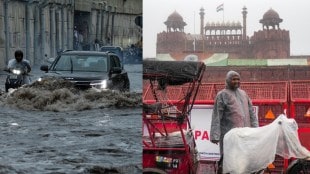Since the inception of the Covid-19 pandemic, 2 years ago, the entire healthcare infrastructure across the globe took a major hit, and India was no exception to it. Involvement from both the public and private sector had assisted the nation to take control over the situation, despite the fact that the super specialty and private sector had to provide the Covid care as per the government norms only.
With the combined efforts from all the frontline workers, central and state governments working together, there is now a cautious optimism as we are moving to the post-Covid era. It was witnessed during the lockdowns that the mortality rate pertaining to Covid complications were on rise due to lack of beds, oxygen cylinders, healthcare workers, staff, etc. Since then, the healthcare sector has been very well prepared to encounter any other pandemic-like situation, if it arises in the coming times through adequate staff, in-house oxygen plants and stocking of all regular medicine supplies.
“The healthcare infrastructure has immensely grown, attributing to the fact that all measures are being taken by the public and private healthcare sectors in reaching out to Tier II & Tier III cities in providing quality access to all healthcare needs. Slowly and steadily the awareness is getting back among the masses and the healthcare is all prepared to handle the load. Patients are no longer living in fear; they are living in the faith and trust of doctors,” Said Dr Sachin Kandhari, Senior Neurosurgeon and Managing Director, IBS Hospital, New Delhi
“While the constant public fear of getting infected, financial crisis, and the inability to move out for healthcare treatment has also given an opportunity for the hospitals to start investing more on various other modes to reach out to the public, be it through digital, and tele-medication, which, following all adequate measures to have a good platform for online consultations have grown immensely. Though earlier, when most of the planned treatment/ elective surgeries were put on hold by the patients due to the fear, now the hospitals have geared up to promote and sensitise the public, not to delay any further when it comes to high-risk treatments,” Dr Mahipal Singh Sachdev, Chairman, Centre for Sight Group of Hospitals said.
The lessons learnt from this Covid pandemic should be replicated in managing the bigger killers in India like Tuberculosis, Malaria, Dengue, Typhoid, etc. India lags considerably behind the developed world in many health indices and the same level of determination, focus and unity is required by all stakeholders to improve them. Primary and secondary healthcare should be strengthened throughout the country, so that we don’t burden the tertiary care referral centres.
Doctors and health care workers should be protected from the scourge of violence and stigma both in private and public establishments. This pandemic has been a wakeup call and both centre and state governments should recognise the need for larger GDP allocation to health. The governments, medical associations, public/private hospitals and the public together can transform India into a world leader in health services.









